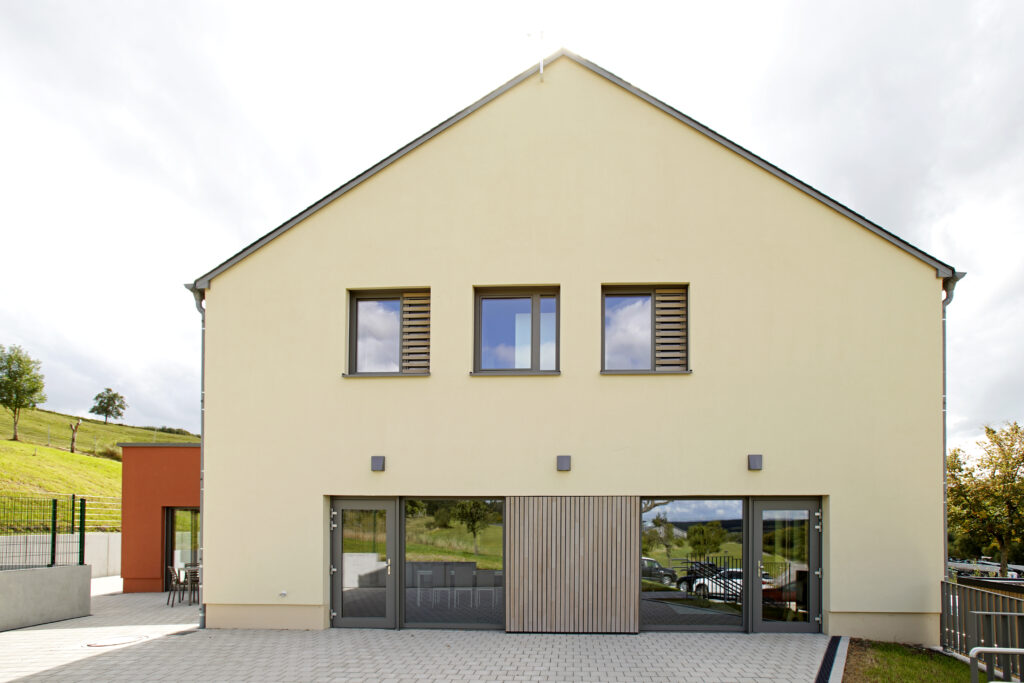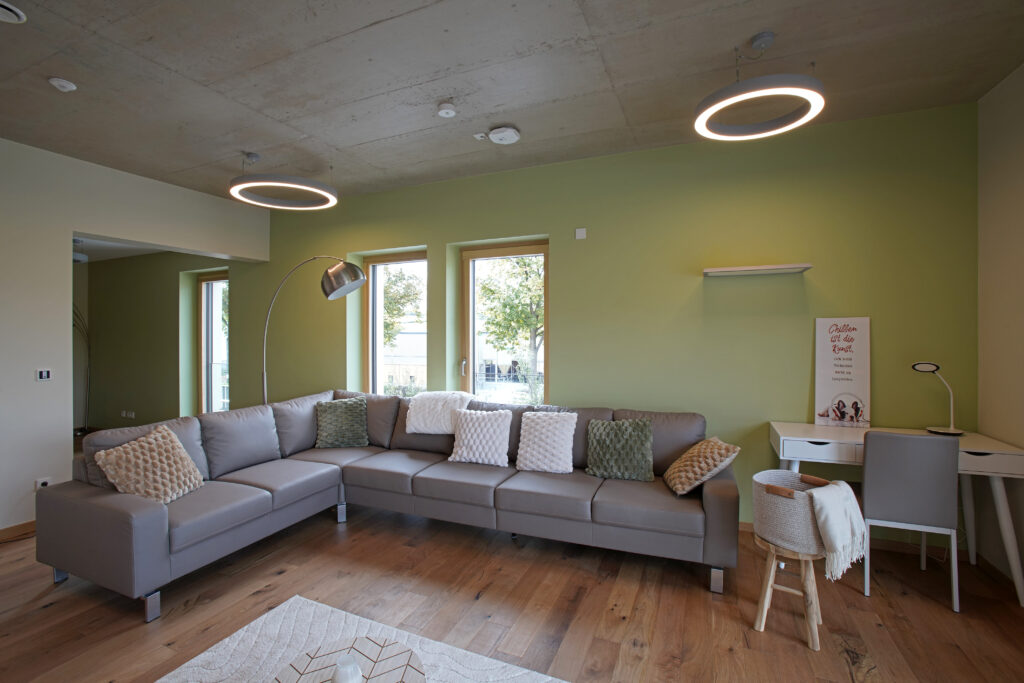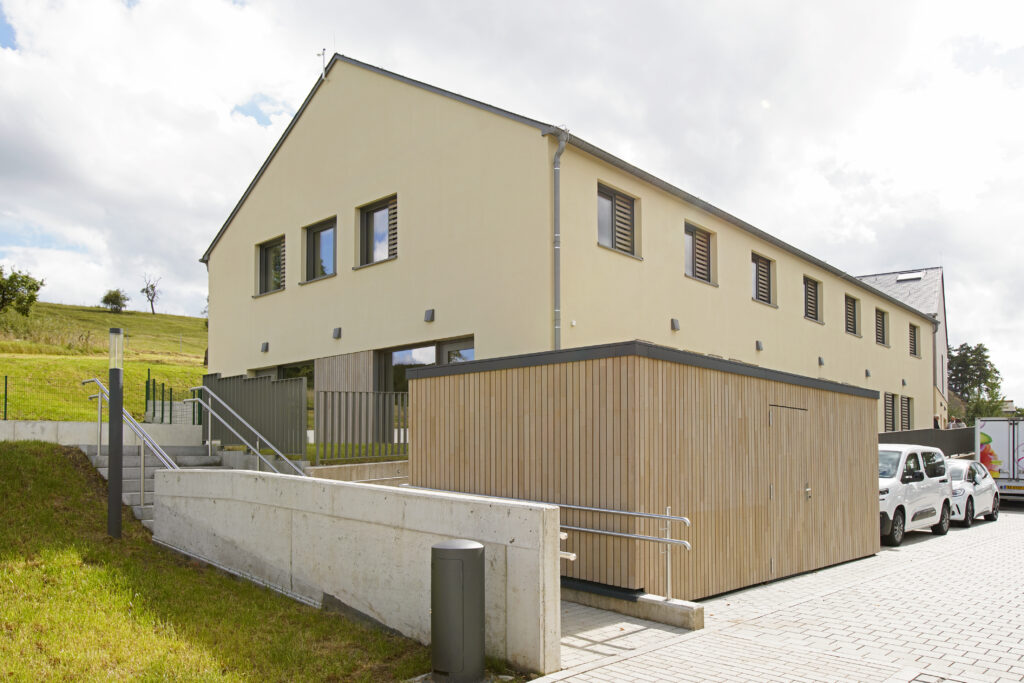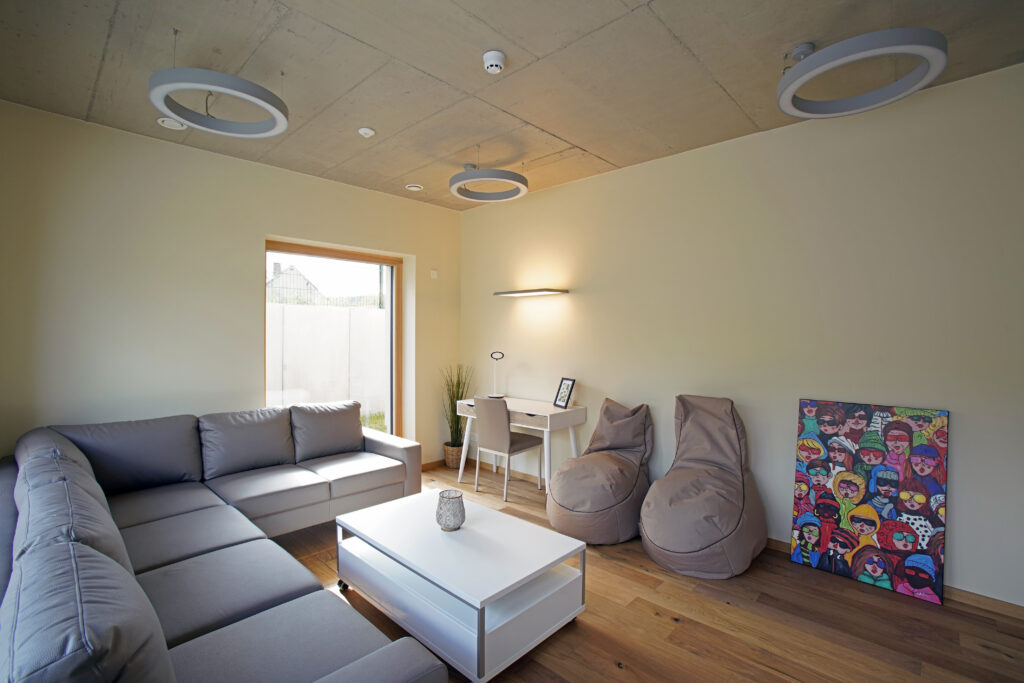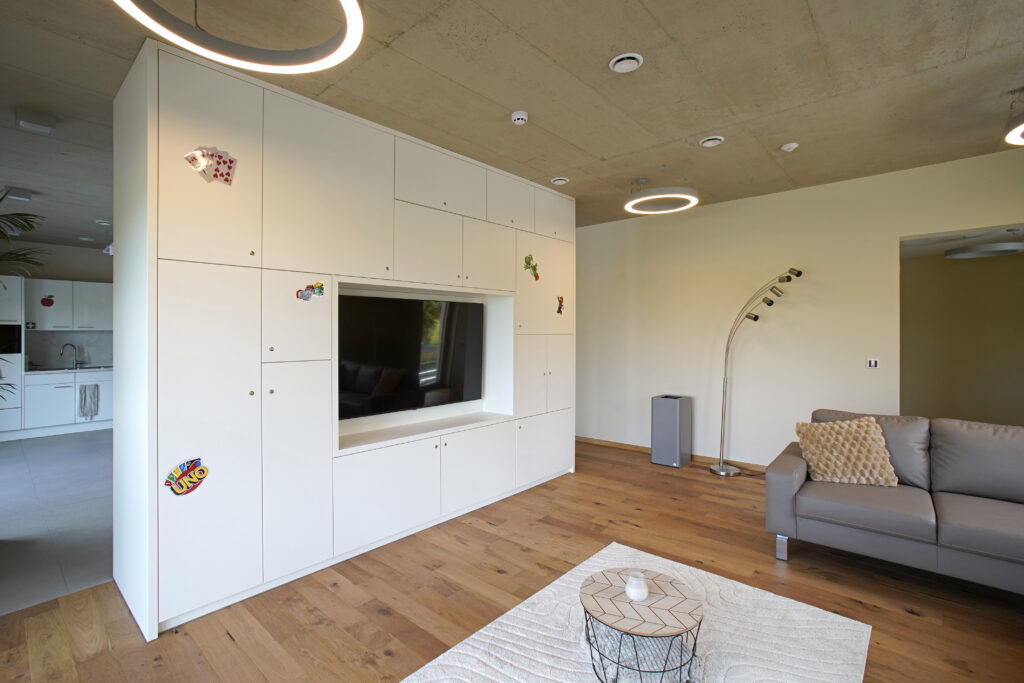03 September 2025
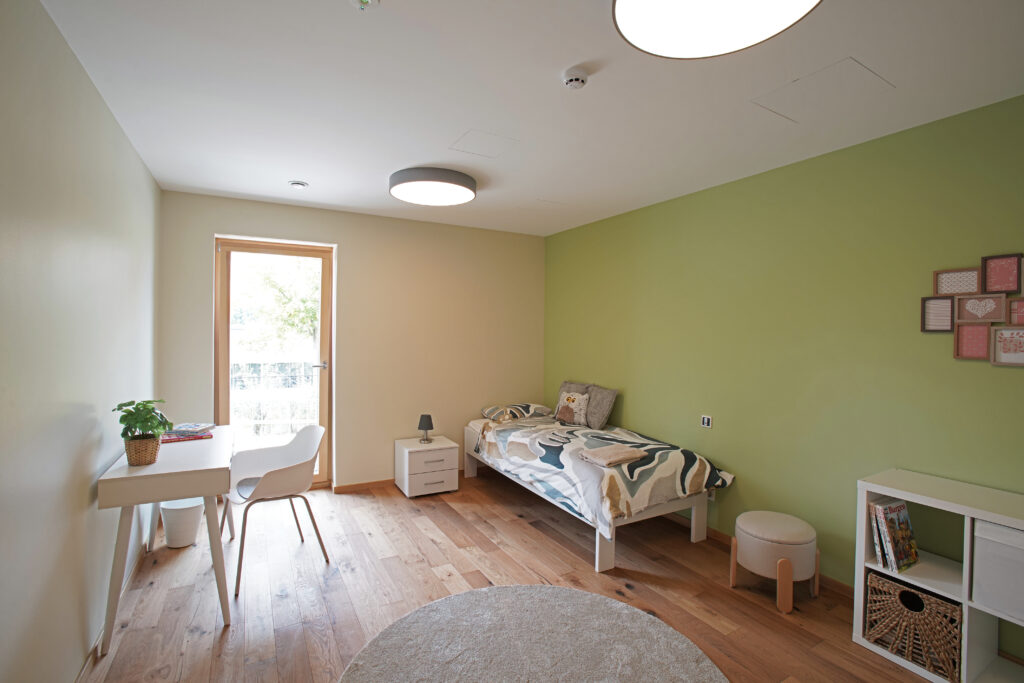
On 2 September 2025, in Oberglabach (municipality of Nommern), a powerful symbol of solidarity and hope for the future was expressed: the Luxembourg Red Cross officially inaugurated a new reception centre for children, adolescents, and young adults experiencing psychosocial distress.
The facility is more than just a new building – it is a safe place for young people who need support, stability, and prospects.
“The generosity of supporters makes a real difference for the children and adolescents welcomed into these new premises,” emphasized Michel Simonis, Director General of the Luxembourg Red Cross.
A place for protection, development, and independence
The new centre brings together three coordinated types of accommodation under one roof – each tailored to the age, life situation, and individual support needs of the young residents.
“Centre d’Accueil Norbert Ensch” (CANE)
For children and adolescents aged 4 to 18 who are temporarily unable to live in their family environment – often due to court decisions. Up to eight children can be accommodated here in a protected setting, where siblings are intentionally kept together to preserve family bonds.
“Service Perspectives” – supported Living
Young people aged 16 to 27 in psychosocial crisis not only receive housing in this section but also individual educational guidance and support in pursuing their education or career path.
“Jugendwunnen” – semi-Independent living
For particularly autonomous young adults (18–27 years old), seven individual apartments are available. Socio-educational support can be requested flexibly, depending on the individual’s needs.
The project is a central element of the Luxembourg Red Cross’s 2030 strategy and was made possible with the support of numerous partners: the Ministry of Education, Children and Youth (MENJE), the National Office for Children (ONE), as well as generous donations from the public.
A particularly decisive contribution was the donation of land by a family from Oberglabach – a powerful sign of local commitment.
“Children and young people need safe spaces and dedicated educational professionals who provide personalised and committed support,” explains Mireille Neuen, Director of the Child and Family Support Department (AEF). “This new centre offers both.”
The integration of housing, support, and education forms the core of this new offering. For many young people, this is an essential prerequisite for a successful transition to independent living.
“This centre strengthens the connection between support, housing and education – a key element for long-term equal opportunities,” says Véronique Schmit, Director of the Non-Formal Education Department (ENF).
With this new structure in Oberglabach, the Red Cross sends a strong signal: for humanity, for tangible support – and for the future of young people who need help to shape their lives independently.
